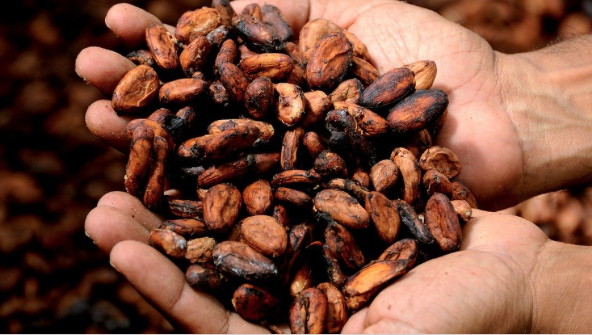What do you think of when you hear the word bitter? Usually, there’s a negative connotation: “that person is so bitter,” “I feel bitter about this situation.” What I find so interesting about bitter, though, is that it can be incredibly healing if we let. Whenever we’re bitter about something, there’s always also a lesson we can learn or a place we can grow into an expanded level of awareness, compassion, forgiveness, and healing; bitterness shows us which areas of our lives we aren’t fully in acceptance or non-judgment with.
Bitter-taste, physically, works with the body in the form of detoxing and cleansing; so it makes sense that bitterness would stir up any areas within us (physically, emotionally, mentally, spiritually) that aren’t fully integrated/healed and are ready to be cleansed. When I think about bitter, I always think of cacao. Cacao is the bitter-tasting seed that all chocolate comes from. In its raw form, when you first eat it or drink it, it tastes bitter and awkward. Then, just minutes later, it starts to crack our hearts wide open—making us feel relaxed, at ease, loving, creative, curious, and sometimes quite emotional (depending on what it brings up for us, or what environment we’re in when we eat/drink it). Why do I think of cacao? Because sometimes it takes drinking bitterness before we can unlock our own inner sweetness, and that’s part of the magic of bitter-taste.
In Ayurveda, bitter is one of the six tastes, and it’s a taste that can often make us cringe when we first try it. It has immense regenerative properties, and its main attributes are: cooling, lightness, dryness. It’s cleansing to the body, and regulates digestion.
Emotionally, bitter taste can promote a healthy detachment from the world and a focus on more spiritual pursuits, introversion, self-awareness, and freedom from temptation. We feel clear, cleansed, focused, and able to access our inner witness and not get easily sucked into other people’s drama or carried away by an experience. Physically, it scrapes fat and toxins from the body, improves other tastes, alleviates thirst, stimulates a healthy appetite, kills germs and parasites from the GI tract, clears congestion, and can help reduce tendencies of fainting, burning, or itching. It’s anti-inflammatory, cleansing to the liver, firms the skin and muscles, and works as a digestive tonic (in small doses). Too much bitterness can reduce bone marrow, sexual energy, and sperm count, cause nausea, dizziness, dryness and roughness, emaciation, and weariness. Too much bitterness will make someone bitter, cynical, isolated, lonely, repulsed and uninteresting.
Bitter aggravates Vata and Pitta, balances Kapha, and is comprised of Air and Ether elements. It primarily acts on the Heart, Small Intestines, Pancreas, Liver, and Spleen. And bitter affects 5 out of the 7 tissues, dhatus, of the body: plasma (rasa), blood (rakta), fat (meda), nerves (majja) and reproductive tissues (shukra—male, arthava—female).
Some examples of bitter-tasting foods and herbs:turmeric rot, dandelion root and greens, aloe vera, yellow dock, fenugreek, sandalwood, neem, coffee, bitter melon, dill, cumin, saffron, sesame seeds, dark chocolate, Jerusalem artichokes, eggplant, dark leafy greens like kale and collards, burdock root.
It’s really special to learn about the six tastes in Ayurveda, and how each taste impacts the body. It’s amazing to think about taste on the most basic level: that it is the experience of compounds in the food reacting to compounds in our saliva (which is formed based on the wellbeing/constitution of our body). That means, the way we taste is entirely dependent upon how our biology/physiology/chemistry interacts with the biology/physiology/chemistry of the food we eat.
Taste can restore balance, when used properly. And it can bring us much happiness, joy, and nourishment—especially because eating is something we all have to do, everyday, to survive. Why not do it in a way that makes you feel good? That’s enjoyable and nourishing for the whole body? The best way to do that is to have a basic knowledge of the six tastes, the doshas (reference our previous articles), and to know your own body on a more intimate level. If you want to learn more about your constitution and your needs, schedule a consultation with us on our website or give us a call. We are here to answer all your questions, and can’t wait to connect with you!
Sources
“Ayurvedic Tongue Diagnosis,” by Walter Shantree Kacera, 2006.
